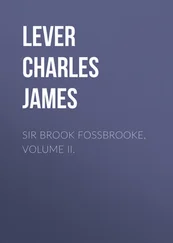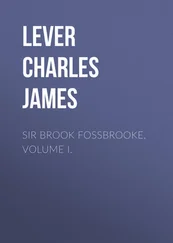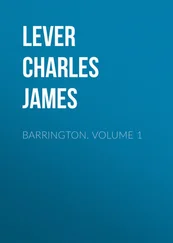Charles Lever - Tom Burke Of Ours, Volume II
Здесь есть возможность читать онлайн «Charles Lever - Tom Burke Of Ours, Volume II» — ознакомительный отрывок электронной книги совершенно бесплатно, а после прочтения отрывка купить полную версию. В некоторых случаях можно слушать аудио, скачать через торрент в формате fb2 и присутствует краткое содержание. Жанр: literature_19, foreign_antique, foreign_prose, на английском языке. Описание произведения, (предисловие) а так же отзывы посетителей доступны на портале библиотеки ЛибКат.
- Название:Tom Burke Of Ours, Volume II
- Автор:
- Жанр:
- Год:неизвестен
- ISBN:нет данных
- Рейтинг книги:3 / 5. Голосов: 1
-
Избранное:Добавить в избранное
- Отзывы:
-
Ваша оценка:
- 60
- 1
- 2
- 3
- 4
- 5
Tom Burke Of Ours, Volume II: краткое содержание, описание и аннотация
Предлагаем к чтению аннотацию, описание, краткое содержание или предисловие (зависит от того, что написал сам автор книги «Tom Burke Of Ours, Volume II»). Если вы не нашли необходимую информацию о книге — напишите в комментариях, мы постараемся отыскать её.
Tom Burke Of Ours, Volume II — читать онлайн ознакомительный отрывок
Ниже представлен текст книги, разбитый по страницам. Система сохранения места последней прочитанной страницы, позволяет с удобством читать онлайн бесплатно книгу «Tom Burke Of Ours, Volume II», без необходимости каждый раз заново искать на чём Вы остановились. Поставьте закладку, и сможете в любой момент перейти на страницу, на которой закончили чтение.
Интервал:
Закладка:
“This way, Monsieur,” said the groom, who, dressed in a plain dark brown livery, was mounted on a horse of great size and symmetry.
As he spoke, he dashed forward at a gallop which all my efforts could not succeed in overtaking. In less than ten minutes the man halted, and, waiting till I came up, he pointed to a gentle acclivity before me, across which the highroad led.
“There lies the road, sir; continue your speed, and in twenty minutes you reach Göding.”
“One word,” said I, drawing forth my purse as I spoke, – “one word. Tell me, who is your master?”
The groom smiled, slightly touched his hat, and without uttering a word, wheeled round his horse, and before I could repeat my question, was far on his road back to the château.
Before me lay the river, and the little bridge of Göding, across which now the Russian columns were marching in rapid but compact order. Their cavalry had nearly all passed, and was drawn with some field-guns along the bank; while at half-cannon-shot distance, the corps of Davoust were drawn up in order of battle, and standing spectators of the scene. On an eminence of the field a splendid staff were assembled, accompanied by a troop of Tartar horsemen, whose gay colors and strange equipment were a remarkable feature of the picture; and here, I learned, the Emperor Alexander then was, accompanied by General Savary.
As I drew near, my French uniform caught the eye of the latter, and he cantered forward to meet me. Tearing open the despatch with eagerness, he rapidly perused the few lines it contained; then, seizing me by the arm in his-strong grasp, he exclaimed, —
“Look yonder, sir! You see their columns extending to Serritz. Go back and tell his Majesty. But no; my own mission here is ended. You may return to Austerlitz.”
So saying, he rode back to the group around the Emperor, where I saw him a few minutes after addressing his Majesty; and then, after a formal leave-taking, turn his horse’s head and set out towards Brunn.
As I retraced my steps towards the camp, I began to muse over the events which had just occurred; and even by the imperfect glimpses I could catch of the negotiations, could perceive that the Czar had out-manoeuvred Napoleon. It is true, I was not aware by what means the success had been obtained; nor was it for many a year after that I became cognizant of the few autograph lines by which Alexander induced Davoust to suspend his operations, under the pretence that the Austrian armistice included the Russian army. It was an unworthy act and ill befitting one whose high personal courage and chivalrous bearing gave promise of better things.
CHAPTER VIII. THE COMPAGNIE D’ELITE
With whatever triumphant feelings the Emperor Napoleon may have witnessed the glorious termination of this brief campaign, to the young officers of the army it brought anything rather than satisfaction, and the news of the armistice was received in the camp with gloom and discontent. The brilliant action at Elchingen, and the great victory at Austerlitz, were hailed as a glorious presage of future successes, for which the high-sounding phrases of a bulletin were deemed but a poor requital. A great proportion of the army were new levies, who had not seen service, and felt proportionably desirous for opportunities of distinction; and to them the promise of a triumphant return to France was a miserable exchange for those battlefields on which they dreamed they should win honor and fame, and from whence they hoped to date their rise of fortune. Little did we guess, that while words of peace and avowals of moderation were on his lips, Napoleon was at that very moment meditating on the opening of that great campaign, which, beginning at Jena, was to end in the most bloody and long sustained of all his wars.
Nothing, however, was now talked of but the fêtes which awaited us on our return to Paris, – while liberal grants of money were made to all the wounded, and no effort was spared which should mark that feeling of the Emperor’s, which so conspicuously opened his bulletin, in the emphatic words, “Soldiers, I am content with you!”
Napoleon well understood, and indeed appeared to have anticipated, the disappointment the army would experience at this sudden cessation of hostilities; and endeavored now to divert the torrent of their enthusiasm into another and a safer channel. The bulk of the army were cantoned around Brunn and Olmutz; some picked regiments were recalled to Vienna, where the Emperor was soon expected to establish his headquarters; while many of those who had suffered most severely from forced marches and fatigues were formed into corps of escort to accompany the Russian prisoners – sixteen thousand in number – on their way to France; and lastly, a compagnie d’élite , as it was called, was selected to carry to the Senate the glorious spoils of victory, – forty-five standards taken on the field of Austerlitz, and now destined to grace the Palace of the Luxembourg.
I had scarcely seated myself to the humble supper of my bivouac, when an orderly came to command me to General d’Auvergne’s quarters. The little sitting-room he occupied, in a peasant hut, was so filled with officers that it was some time before I could approach him; and my impatience was not lessened by more than once hearing my name mentioned aloud, – a circumstance not a little trying to a young man in the presence of his superiors in station.
“But here he is,” said the general, beckoning to me to come forward. “Burke, his Majesty has most graciously permitted me to include your name in the compagnie d’élite , – a testimony of his satisfaction you’ve every reason to be proud of. And just at the moment I was about to communicate the fact to you, I have received a message from Marshal Murat, requesting that I may permit you to serve on his own staff.”
“Yes, Captain,” said an officer in the uniform of a colonel, – it was the first time I had been addressed by my new title, and I cannot express what a thrill of pleasure the word gave me, – “Marshal Murat witnessed with pleasure the alacrity and steadiness of your conduct on the 2d, and has sent me with an offer which I fancy few officers would not deem a flattering one.”
“Unquestionably it is, Colonel,” said General d’Auvergne; “nay, more, I will say I regard it as the making of a young man’s fortune, thus early in his career to have attracted such high notice. But I must be passive here; Captain Burke shall decide for himself.”
“In that case, sir, I shall cause you but little delay, if you will still permit me to serve on your own staff.”
“But stay, my boy, do not be rash in this affair. I will not insult your better feeling by dwelling on the little power I possess, and the very great enjoyed by Marshal Murat, of serving your interests; but I must say, that with him, and on his personal staff, opportunities of distinction – ”
“And here I must interpose,” said the colonel, smiling courteously: “with no officer in this army can a man expect to see service, in its boldest and most heroic colors, rather than with General d’Auvergne.”
“I know it, – I feel it, too; and with him, if he will allow me – ”
“Enough, my dear boy,” said the old man, grasping my hand in his. “Colonel, you must explain to the marshal how stands this matter; and he is too kind of heart and too noble of soul to think the worse of any of us for our obstinacy. And now, my young friend, make your arrangements to join the compagnie d’élite ; they march to-morrow afternoon, – and this is a service you cannot decline. Leave me to make your acknowledgments to the marshal, and lose no more time here.”
Short as had been my absence from my quarters, when I re-entered, I descried Tascher seated at the table, and busily employed in discussing the last fragments of my supper.
Читать дальшеИнтервал:
Закладка:
Похожие книги на «Tom Burke Of Ours, Volume II»
Представляем Вашему вниманию похожие книги на «Tom Burke Of Ours, Volume II» списком для выбора. Мы отобрали схожую по названию и смыслу литературу в надежде предоставить читателям больше вариантов отыскать новые, интересные, ещё непрочитанные произведения.
Обсуждение, отзывы о книге «Tom Burke Of Ours, Volume II» и просто собственные мнения читателей. Оставьте ваши комментарии, напишите, что Вы думаете о произведении, его смысле или главных героях. Укажите что конкретно понравилось, а что нет, и почему Вы так считаете.












